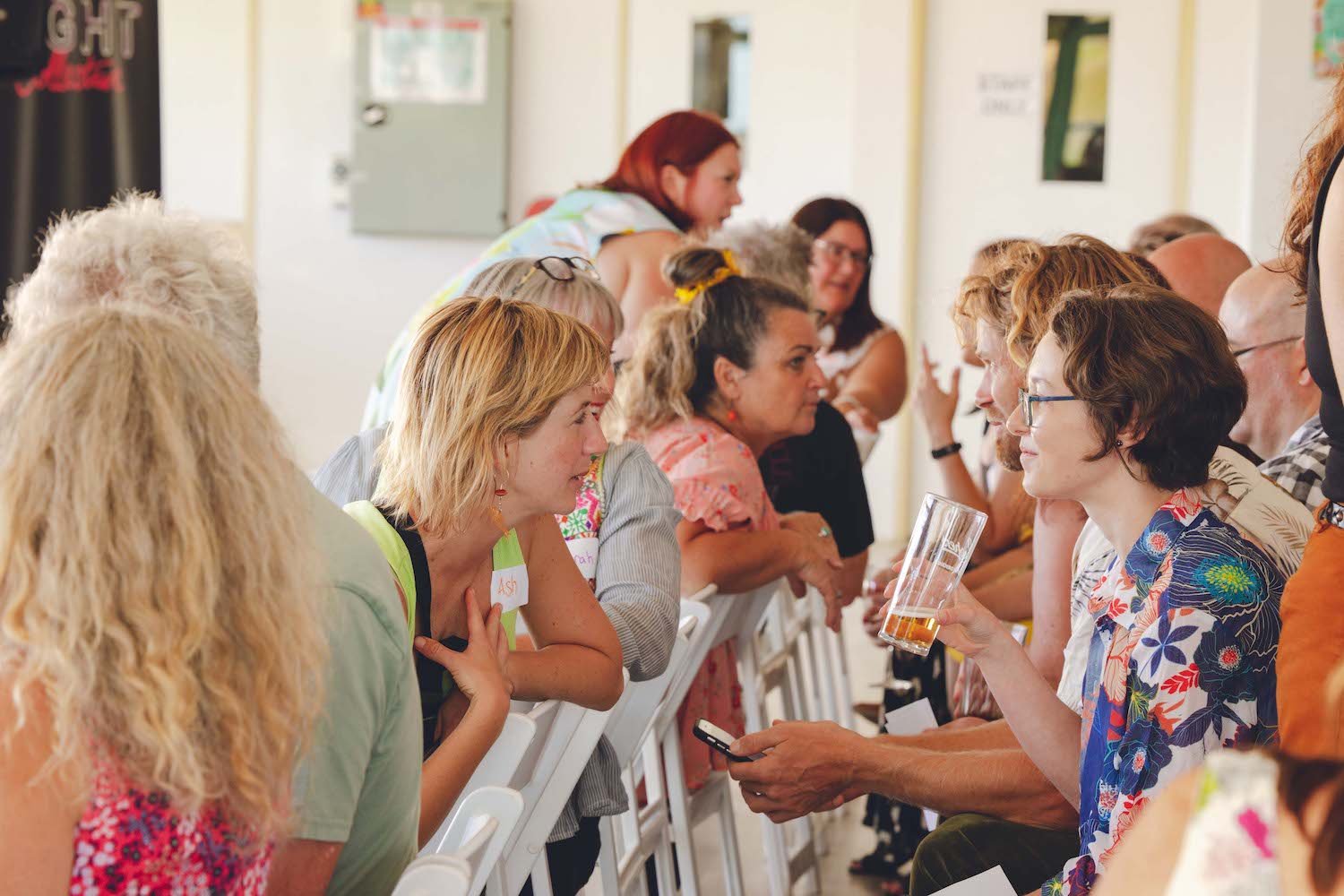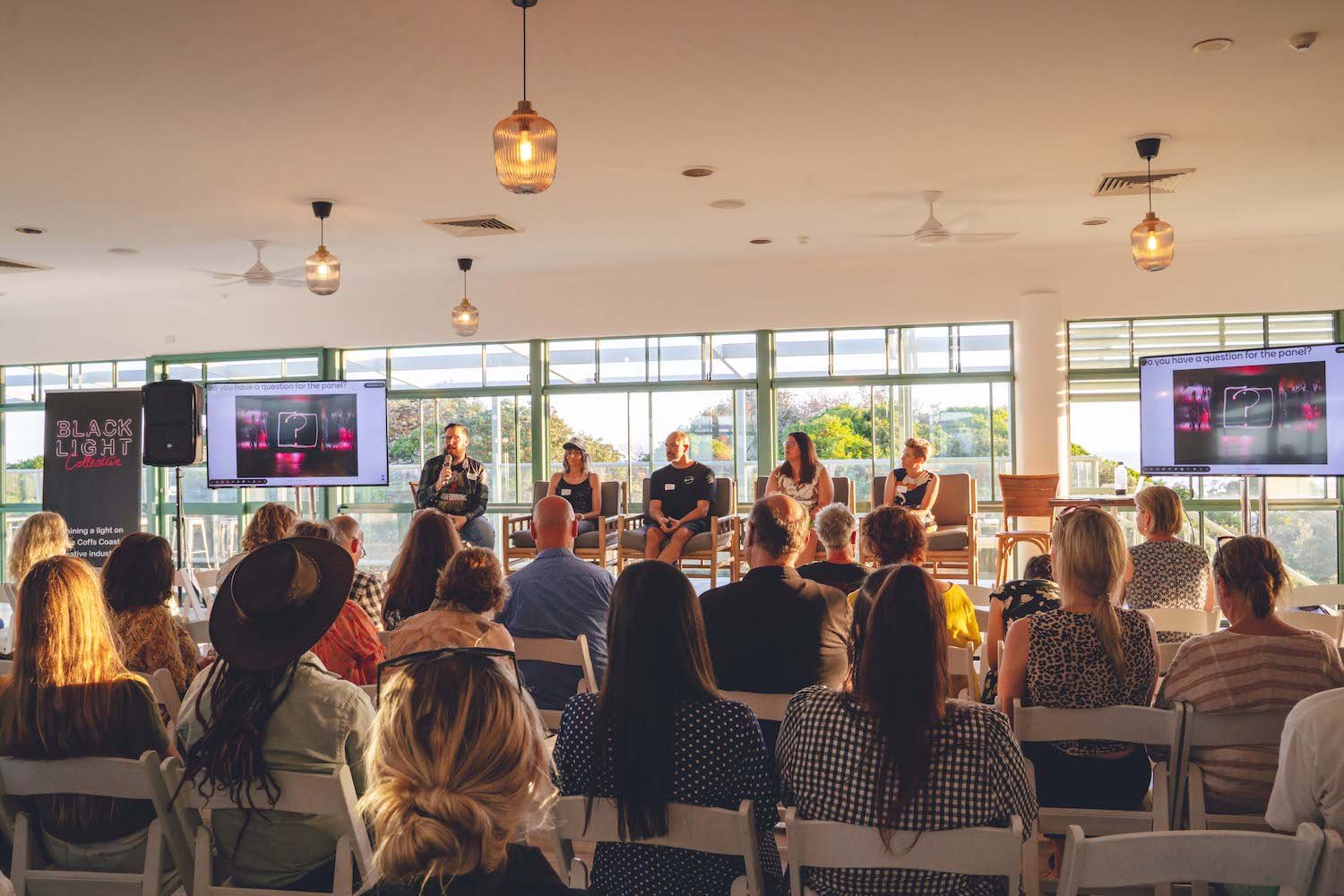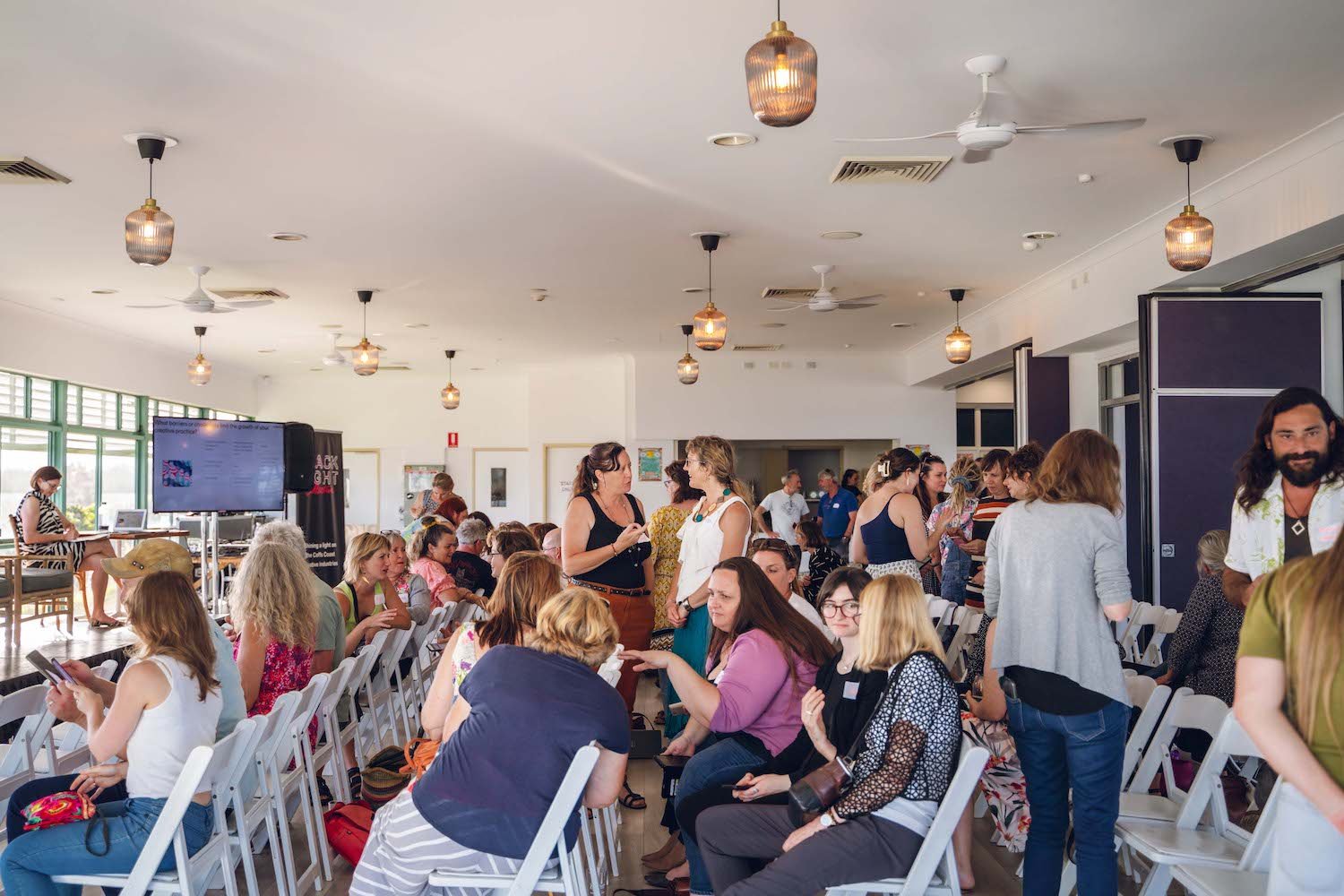Coffs Coast creative industries networking evening, hosted by Blacklight Collective Inc.
This event was jointly funded by the NSW Small Business Commission, Coffs Coast Business Women's Network and Coffs Harbour City Council.
Thank you to all the creatives who gathered at Jetty Beach House on Tuesday 15th November for a proper catch up. It was great to see and meet many new faces.
Clearly the Coffs Coast continues to see an influx of creative industries workers, leading to increased diversity of creative endeavours and potential for collaboration in this region.
With 70+ people in the room, the data gathered via our interactive presentation were quite insightful.
Our keynote speaker Jeremy Sheehan took us through some clever mind gymnastics in which we were invited to try different ways to re-frame problems, by honing our creative thinking.
Our discussion panel featured Suzanne Ryan from SLR Productions / Screen Producers Australia, Sharon Joy from Business Women’s Network, Billie-Jo Porter (independent singer-songwriter), Dave Mansfield from Jetty Beach House and was hosted by Dave Horsley from SWIFF. Responding to questions put by the audience, the panel gave opinions on what a connected creative industries sector looks like and what we could be doing, collectively, as a sector to achieve this vision.
What follows is a summary of the topics discussed and overarching themes that arose from audience contributions to the discussion.
Employment
We began by gathering information about the audience’s employment status, how much paid work they were getting (in the creative industries) and the line of business in which they work. The answers to questions 2 and 3 were linked to the results of the previous question. Thus we were able to see that a noticeable chunk of self-employed contractors are getting too much unpaid work or none at all. This suggests there are creatives who are either setting out on their journey to getting paid for the work they do / what they create, or are having trouble finding enough work or a market for their products or services. Meanwhile, it’s telling that those running businesses, with or without staff, are feeling overloaded by the amount of work coming their way.
The Line of Business slide shows just now many different types of creative work were represented in the room. The graph also shows there is a good spread of full and part time roles across various industries, while perhaps understandably, not all visual artists have managed to fully monetize their efforts. Those who answered ‘other’ included a ceramicist, a sculptor and some government workers.
Challenges and barriers
Asked to describe what challenges and barriers workers faced in developing their creative practice or business, the responses fell into 3 broad categories. These themes were also reflected in the questions posed by the audience during the panel discussion.
1) Pressure of time and money
There’s only one ‘me’.
Affordability of paying staff.
Working full time in another career and not enough time for my creative work.
Income not high enough to employ more.
Having to wear all the hats, spending more money creating products then I am making!
Money …yeah, money.
2) Limitations of the market / options for growth
Responses and audience questions speak to two aspects of market limitations in this region: one being the need to advertise beyond the Coffs Coast to reach customers, either by leveraging sales platforms or encouraging tourism; the other focussing on the need to develop local audiences to understand and appreciate the many specialties and niche products and services offered in this region.
“Regional artist” label in the big smoke.
People actually spending money, as well as showing up.
Lack of business and community support.
Scale and size of projects available in the area.
Economic highs and lows and playing to a limited audience present major challenges for creatives in this region.
In terms of making money, how do you consider locals compared to tourists given the socio-economic factors here compared to cities?
How do we attract bigger crowds to events? Do we need better marketing strategies ? Do we need to market to interstate audiences more ?
Is there actually a market for the more creative / innovative events in this region or are we really more of a sports/ mainstream region?
3) Personal motivation / confidence
Confidence to put myself out there and 'sell' my skills and knowledge.
I work full time in a day job that takes lots of my time and energy so I often don't have enough time! So I guess honestly, motivation.
Confidence to put myself out there.
Self confidence and limiting beliefs.
Self care.
The responses suggest there is on-going value in creatives hearing success stories and sharing experiences. Beyond winning awards or financial achievements, ‘success’ is about navigating the everyday ups and downs of harnessing one’s creative thinking for the purpose of producing art or delivering services. Perhaps the more we can know about who’s doing what and how they’re going about it, the stronger we can become as a sector.
For each panelist, what is their definition of ‘creative?’
What was the turning point that made you pursue creative industries full time?
Top tips for securing sponsorships?
An additional thread of commentary woven through all topics revolves around government’s role in facilitating and supporting change...
Do you think council has a role in expanding and supporting the creative industries in the area? If so, how?
Government strategic policy.
Govt regulation on content platforms.
What steps do we need to take to become a cultural hub?
Visions of the future
We asked the audience to look ahead and imagine their vision of the creative industries in this region, as well as the roles they might play in achieving that vision.
The word cloud and sliding scales pointed to strong support for collaboration and the need to innovate or specialize to stand out, indicating the importance of regular opportunities for creative workers to mingle, discover and share ideas.
What’s next?
Blacklight Collective Inc. currently consists of a lean committee of dedicated but time-poor creatives working on the Coffs Coast. As an association focussed on shining a light on regional creative industries, we are able to auspice grant applications, in particular for projects that achieve industry growth. We also advocate for developments that help the creative industries grow and prosper. And we expect to host future meet-ups and networking opportunities for creatives. A relatively small investment of time and expertise can have a dramatic impact on projects when we act collectively.
Images by @andthetreesphtography. Follow us @blacklight.collective on Instagram. BLC website.











